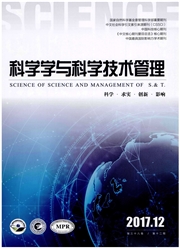

 中文摘要:
中文摘要:
对新产品和再制造产品竞合分析的基础上,构建了两周期及无限周期下闭环供应链产品协调模型,通过数值模拟,分析制造商各决策变量随产品可再造水平升降而变化的情况,以及不同形式政府支持对其最优选择的影响。结果表明生态产品创新效率不高时,企业本身开发生态产品动力不足,需要政府提供一定的鼓励政策;变动新产品补贴使得制造商有动力提高产品可再造水平,但没有增加制造商参与再制造的积极性;再制造补贴虽然使制造商在产品可再造水平不是很高时开始再制造,但效果不及消费者对再制造产品认知度增加的影响。
 英文摘要:
英文摘要:
In the closed-loop supply chain of two-phase and infinite cycle, this paper builds product coordination models based on the analysis of the coopetition relationship between new product and remanufactured product. By the test and simulation, it studies the effect of the remanufactureablity level on the decision variables of the manufacturer, the impact of different forms of support from the government on the optimal choice. The results show that the enterprises have no motive power to develop ecological product when the innovative efficiency of ecological product is not high, so the support from the government is required. The subsidy of variable new product makes the company developing the remanufacturablity level, but it does not increase the motivation of the company involved in remanufacturing. The subsidy of remanufactured product can make the enterprise begin remanufacturing when the remanufacturablity level is not very high, but it has not as good as the raise of product recognition.
 同期刊论文项目
同期刊论文项目
 同项目期刊论文
同项目期刊论文
 Study on driven factors, wave-particle duality and dissipation structure characteristics based on su
Study on driven factors, wave-particle duality and dissipation structure characteristics based on su The virtual enterprise and performance evaluation using exergoeconomics in a closed-loop supply chai
The virtual enterprise and performance evaluation using exergoeconomics in a closed-loop supply chai 期刊信息
期刊信息
